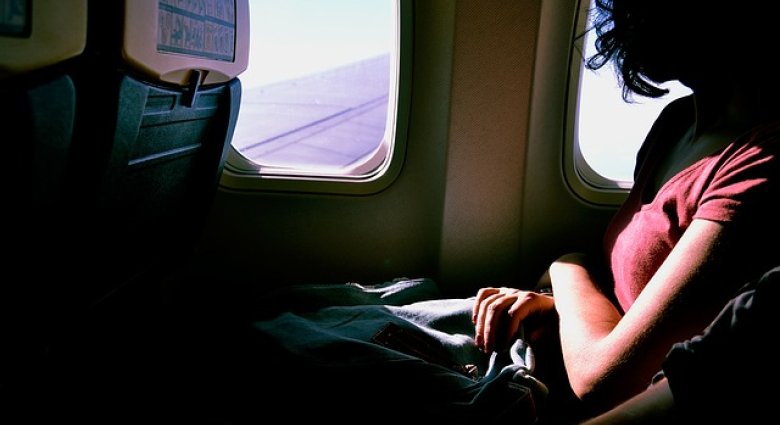
Business trips - what should you know?
What should employees know when travelling on business? What rights do they have in this respect? What should employers know about their organisation? The one below.
Every employee who travels on business should know what rights he or she has in respect of such travel. Therefore, you should be familiar with all applicable laws and Company policies that govern this matter. Employers, on the other hand, should know that there is no need for them to recruit staff working on this subject, as they can outsource the organisation of business travel to an external company that offers a comprehensive service in this area.
Definition of business trip based on the provisions of the Labour Code
According to the Labour Code, and specifically Article 775 § 1, a business trip is any departure of an employee, at the employer's request, from the place where the employer has its registered office or a permanent place of work in order to perform a business task. Commonly called a delegation, but wrongly so, because business travel and secondment is something completely different, but about it later.
For a trip to be considered a business trip, a total of three conditions must be met: the employer's instructions, to do so in order to perform the sentence specified by the employer and outside the employer's permanent workplace/seat.
The travel order must contain certain fixed elements, i.e. the purpose of the journey, the place of departure and destination, the duration of the journey, the means of transport, and the receipt by the staff member of an advance on the cost of the journey.
The secondment referred to above means that the employee is sent for a fixed period of time to a place other than that specified in the employment contract. Secondment involves the need to annex an existing contract. It usually takes longer than a business trip. The provisions relating to mission travel, such as those relating to allowances, shall not apply to staff members on secondment.
The employer does not have to organise such trips himself. He can outsource it to an outside company.
Basic issues relating to missions
Working time includes all travelling time that coincides with the working hours of the individual employee. Working time outside working hours ('overtime') includes only time spent on a task while travelling.
Financial issues related to business trips concerning employees employed in state or local budget units are regulated by the Regulation of the Minister of Labour and Social Policy of 29 January 2013. This act may also apply to private sector employees, unless the employer determines other rules resulting from internal regulations, i.e. pay regulations or collective agreements, or specified in the employment contract. Staff members travelling on official duty shall be paid a subsistence allowance to cover the increased cost of food, unless they are provided with full board. The current diet is 30 zł.
The employee is also entitled to reimbursement of accommodation costs in the amount confirmed by an invoice or receipt or as a lump sum. Currently it amounts to 45 PLN. In addition, he is also reimbursed for travel expenses, unless he travels by business car.
As far as the duration of the business trip is concerned, although there is no clear regulation in this respect, it is assumed that it can last up to a maximum of 3 months. Above this time such a trip should be treated as a secondment.
As a general rule, an employee has no right to refuse to take part in such a trip. Exceptions are pregnant women and employees with a child under the age of 4. In these cases, the employer is obliged to obtain permission to leave each time.
Organisation of missions
Many companies have secretaries/secretaries or assistants for business travel or separate departments. An alternative to such a solution is to entrust this course to a professional company which organizes such trips in a comprehensive manner.
Such companies offer tailor-made services for companies in this area. The cooperation starts with a thorough analysis of the directions of travel, airlines, hotel groups, car rental companies, etc. used by the company. The preferences for travel class, duration, preferred hours and other parameters relevant to specific business trips are also taken into account. After in-depth analysis it is possible to offer optimal solutions for a given company and at the same time reduce travel costs and time spent on travel. Companies providing services in this area often have negotiated competitive prices for air connections or hotel accommodation.
These companies offer the following services under a contract: creation of a company profile with a specific policy of conducting business trips of individual employees depending on the position held, use of discounts, call centre, including dedicated consultants to service a specific company, for large companies, placing an employee on the spot, beneficial forms of settlement (e.g.: a company profile with a specific policy of conducting business trips of individual employees depending on the position held, use of discounts, call centre, including dedicated consultants to service a specific company, for large companies, placing an employee on the spot, beneficial forms of settlement (e.g. (e.g. instructions for debiting the business card via e-mail), issuing invoices plus their individually tailored description (which is often important from the point of view of settlements), assistance in checking in tickets and baggage, assistance in getting quickly to the appropriate gate in the departure zone, assistance in making complaints against third parties who do not fulfil their contractual obligations properly, and many others.
As you can see, outsourcing business travel to an external company offers many benefits that are not available in the case of an independent organization. If there is a high demand for such trips in a given company, it is worth considering commissioning them to professional entities. This guarantees the careful organisation of the journey.
See more

5 reasons to own a smartwatch

Leather wallets - a necessary and fashionable gadget

























